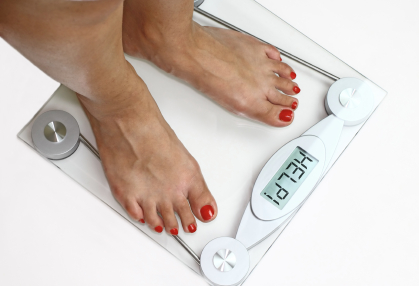Have you been exercising regularly without seeing much weight loss? If so, you may need to make some adjustments to your eating plan.
THEY EXERCISED FOR FIVE HOURS A WEEK FOR 12 WEEKS AND ONLY LOST 1.5 LBS!
A recent study at the University of Texas has shown that exercise alone without adjustments to diet produces minimal weight loss. The University studied two sedentary control groups. One group of 50 people made no changes to their diet or activity levels at all and were monitored for 12 weeks.
The second group of 50 people exercised with a personal trainer up to five hours per week for a total of 12 weeks and made no changes to their weekly diet. This group lost a mere 1.5 lbs in 12 weeks. I know what you’re thinking, not that impressive.
I’ve been in the fitness industry for over 26 years and I can confirm that these statistics are unfortunately true. Unless you are exercising at the level of an Olympic athlete or a professional football player, it’s pretty tough to lose weight with exercise alone.
Please understand, this DOES NOT mean you should quit exercising. Quite the opposite! The study reveals that exercise alone makes it hard to lose weight. There are many reasons we should all be exercising regularly. Research shows that exercise can help with depression, lower the risk for heart disease and cancer, reduce the risk of diabetes, and even grow new brain cells. Exercise is an excellent anti-aging tool. It’s just not that effective when it comes to weight loss.
The best way to shed pounds for good is a combination of a healthy eating plan AND regular exercise.
HERE’S FIVE SIMPLE DIET CHANGES TO BOOST WEIGHT LOSS
1) Eat carbohydrates. This is where the media often gets it wrong. Your body needs carbohydrates to lose weight. What’s most important is the type of carbohydrates you are eating. Skip the processed white flour and focus on whole grains like wild rice, quinoa, brown rice, organic corn, and beans.
Sweet potatoes and other root vegetables are great options as well.
2) Plan your meals. Planning your meals helps you eat regularly and choose the right foods to stabilize your blood sugar. Stabilizing your blood sugar helps you avoid “storing fat.” You need to eat food to burn energy or “calories.” However, what you eat really does matter.
Try websites or magazines like Cooking Light and Eating Well. Make sure your three main meals are balanced and have a combination of complex carbohydrates (whole grains), protein, healthy fats, fruit, and lots of vegetables. You can never go wrong with plenty of veggies!
3) Snack wisely. A small serving of chips is about 150 calories on average. But, did you know you can eat four cups of popcorn for only 60 calories? Popcorn is way more filling, and will keep you satisfied longer. Not crazy about popcorn? Eat a piece of fruit.
4) Limit the fast food. I realize this may be obvious to some. However, with 25% of our nation eating fast food daily, I do not like to ignore this one. One of our family members lost 22 pounds when she gave up her daily trip to the fast food joint and started brown-bagging her lunch. And, she did not add any exercise to her daily routine.
Most of us picture a drive through window when we think of fast food. However, fast food can come from restaurants that are considered “healthy” as well. When you let someone else cook the meal, you have zero control over how the meal is prepared and/or the ingredients.
Take a look at what’s on the menu at your favorite take out restaurant and decide if the food choices meet your weight loss goals. If not, look for other take out options. Or, have some healthy frozen food on hand and combine it with a fresh salad for a last minute dinner option.
5) Eat Breakfast! This important meal jump starts your metabolism. Once you are awake the body has already been fasting for an average of 10-12 hours depending on eating and sleeping patterns.
Skipping breakfast increases the fast to approximately 15-20 hours. This keeps the body from producing the enzymes needed to metabolize fat to lose weight. When you skip breakfast, you risk sabotaging your weight loss efforts.
Not hungry in the morning? Start with something simple like a piece of a fruit, and have the rest of your breakfast as a mid-morning snack.
A well balanced eating plan is critical for weight loss. When you combine exercise with the right nutrition, it will be easy to lose weight and keep it off for good.
Any questions? Please ask me in the comment section below. I’m happy to help!
Blessings!
Jennifer


